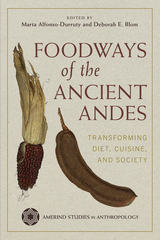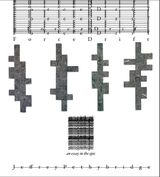
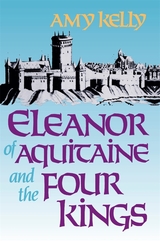
The story of that amazingly influential and still somewhat mysterious woman, Eleanor of Aquitaine, has the dramatic interest of a novel. She was at the very center of the rich culture and clashing politics of the twelfth century. Richest marriage prize of the Middle Ages, she was Queen of France as the wife of Louis VII, and went with him on the exciting and disastrous Second Crusade. Inspiration of troubadours and trouvères, she played a large part in rendering fashionable the Courts of Love and in establishing the whole courtly tradition of medieval times. Divorced from Louis, she married Henry Plantagenet, who became Henry II of England. Her resources and resourcefulness helped Henry win his throne, she was involved in the conflict over Thomas Becket, and, after Henry’s death, she handled the affairs of the Angevin empire with a sagacity that brought her the trust and confidence of popes and kings and emperors.
Having been first a Capet and then a Plantagenet, Queen Eleanor was the central figure in the bitter rivalry between those houses for the control of their continental domains—a rivalry that excited the whole period: after Henry’s death, her sons, Richard Coeur-de-Lion and John “Lackland” (of Magna Carta fame), fiercely pursued the feud up to and even beyond the end of the century. But the dynastic struggle of the period was accompanied by other stirrings: the intellectual revolt, the struggle between church and state, the secularization of literature and other arts, the rise of the distinctive urban culture of the great cities. Eleanor was concerned with all the movements, closely connected with all the personages; and she knew every city from London and Paris to Byzantium, Jerusalem, and Rome.
Amy Kelly’s story of the queen’s long life—the first modern biography—brings together more authentic information about her than has ever been assembled before and reveals in Eleanor a greatness of vision, an intelligence, and a political sagacity that have been missed by those who have dwelt on her caprice and frivolity. It also brings to life the whole period in whose every aspect Eleanor and her four kings were so intimately and influentially involved. Miss Kelly tells Eleanor’s absorbing story as it has long waited to be told—with verve and style and a sense of the quality of life in those times, and yet with a scrupulous care for the historic facts.
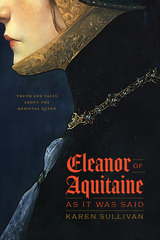
Much of what we know about Eleanor of Aquitaine, Queen of France and then Queen of England, we know from recorded rumor—gossip often qualified by the curious phrase “it was said,” or the love songs, ballads, and romances that gossip inspired. While we can mine these stories for evidence about the historical Eleanor, Karen Sullivan invites us to consider, instead, what even the most fantastical of these tales reveals about this queen and life as a twelfth-century noblewoman. She reads the Middle Ages, not to impose our current conceptual categories on its culture, but to expose the conceptual categories medieval women used to make sense of their lives. Along the way, Sullivan paints a fresh portrait of this singular medieval queen and the women who shared her world.
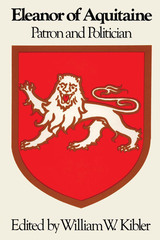
Eleanor of Aquitaine was the wife of two kings, Louis VII of France and Henry II Plantagenet of England, and the mother of two others, Richard the Lionhearted and John Lackland. In her eventful, often stormy life, she not only influenced the course of events in the twelfth century but also encouraged remarkable advances in the literary and fine arts. In this book, experts in five disciplines—history, art history, music, French and English literature—evaluate the influence of Eleanor and her court on history and the arts.
Elizabeth A. R. Brown views Eleanor as having played a significant role as parent and politician, but not as patron. Rebecca A. Baltzer takes a new look at the music of the period that was written by and for Eleanor, her court, and her family. Moshé Lazar reexamines her relationship to the courtly-love literature of the period. Eleanor S. Greenhill and Larry M. Ayres reassess her influence in the realm of art history. Rossell Hope Robbins traces the lines extending from the French courtly literature of Eleanor's period down into fourteenth-century Chaucerian England. The essays reflect divergent but generally complementary assessments of this remarkable woman's influence on her own era and on future times as well.
This volume is the result of a symposium held at the University of Texas in 1973.
READERS
Browse our collection.
PUBLISHERS
See BiblioVault's publisher services.
STUDENT SERVICES
Files for college accessibility offices.
UChicago Accessibility Resources
home | accessibility | search | about | contact us
BiblioVault ® 2001 - 2025
The University of Chicago Press



